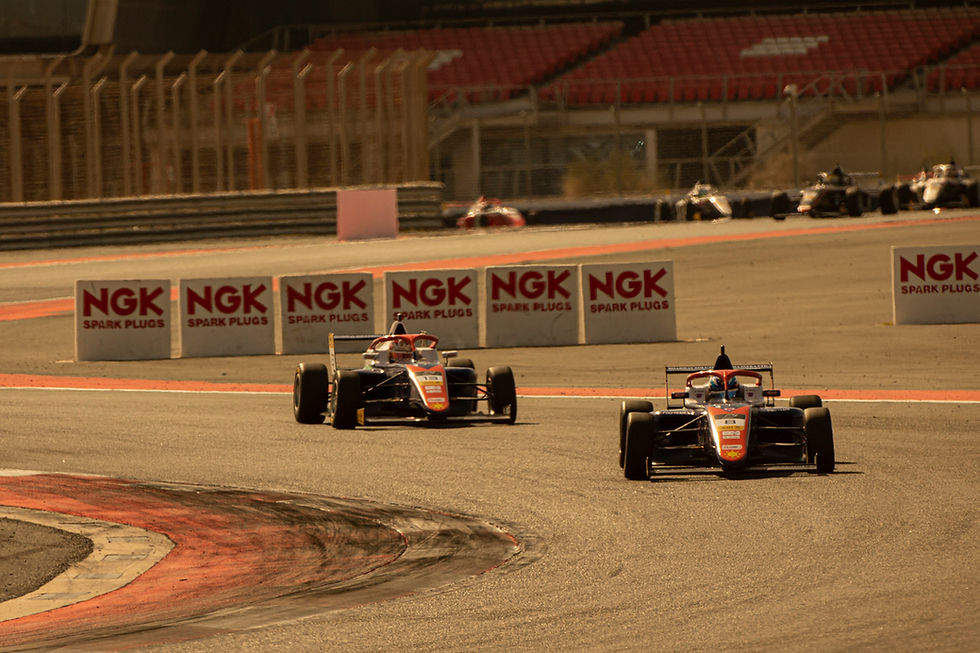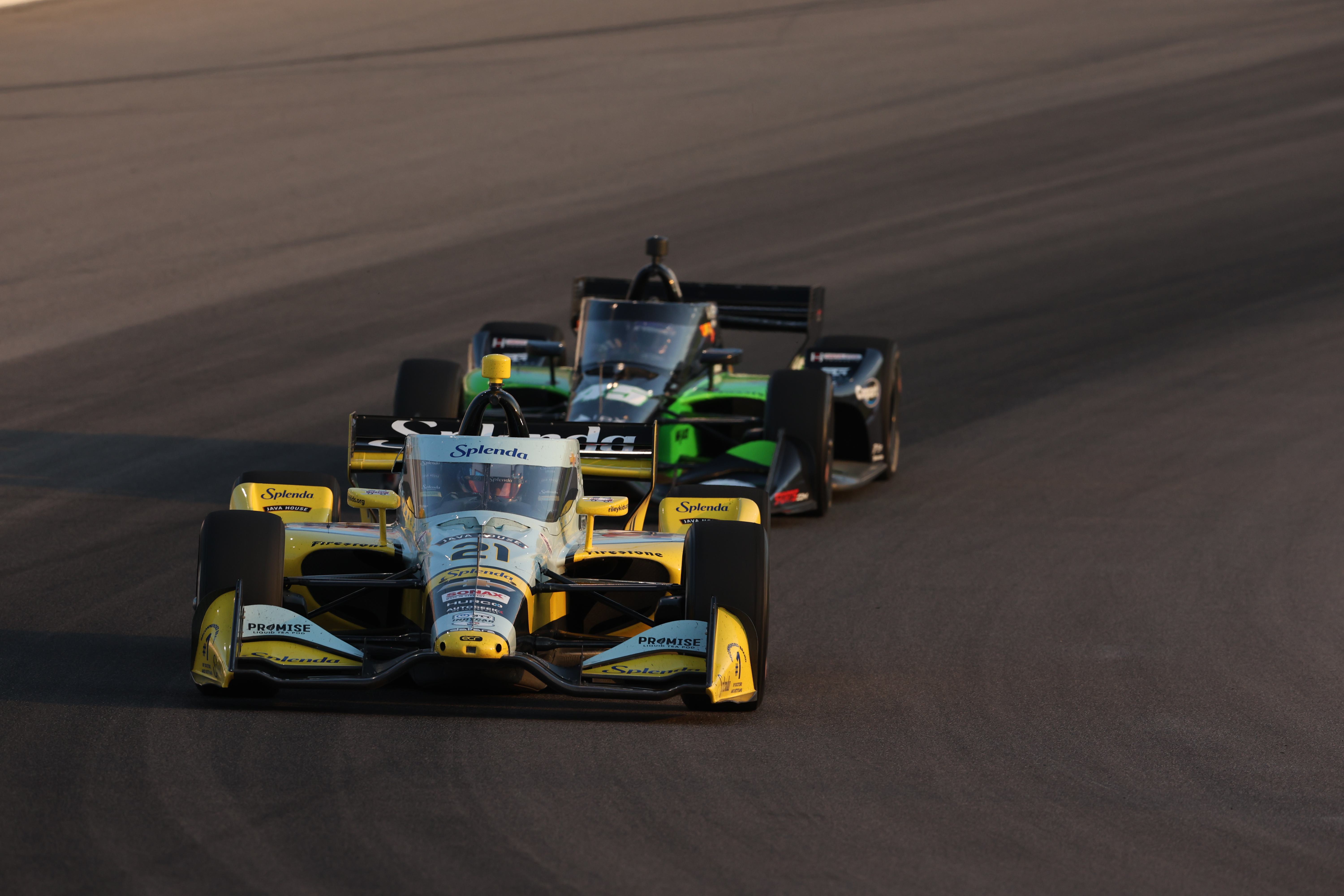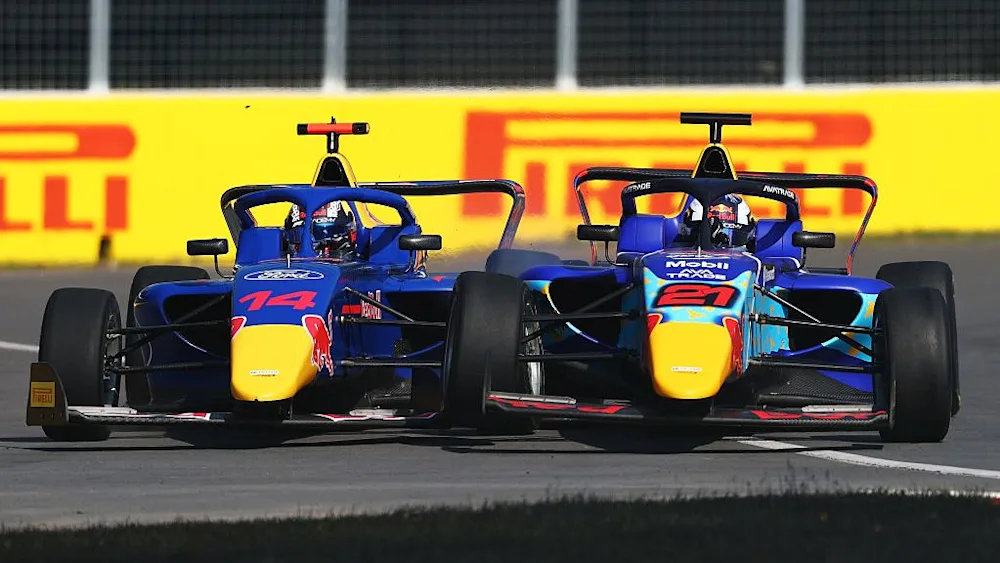What F4 Saudi’s Arrival Means for F4 UAE
- Sean McKean
- Jan 4, 2024
- 3 min read
Updated: Jan 15
Written by Sean McKean, Edited by Vyas Ponnuri
On December 11th, it was announced by Feeder Series that an all-new FIA-backed championship would be arriving on the scene: F4 Saudi.
After the very first race weekend on December 15th and 16th (a trophy round at Bahrain), the future looks bright for the new championship, boasting a 13-car field.
However, when seeing the successes of F4 Saudi, a follower of the feeder series ladder may have a question on their mind: Doesn’t a Middle Eastern Formula 4 championship already exist? Well, you would be correct.
Based in the United Arab Emirates, F4 UAE is going to its eighth season, with the 2024 grid projected to field 30+ cars throughout the season. So, what differentiates the new F4 Saudi championship from its UAE counterpart?
Firstly, the costs. Since its inception, F4 UAE has seen entries from teams commonly seen on the feeder ladder: MP Motorsport, Prema Racing, Rodin Carlin, Hitech Pulse-Eight, and R-ace GP are names familiar even to the common fan.
While it’s great to have internationally based teams on the grid, it causes a problem that people within the sport are used to: money. As a result, some teams may end up giving seats to drivers with the deepest pockets, and rejecting those who have the ability.
On the flip side, F4 Saudi boasts a single-make championship, meaning all cars are maintained and prepared by personnel inside the series, similar to French F4. This not only means every driver in the series is on a level playing field, but it also means less money is required to make a start in racing, great for a young driver with less funding.
Finally, there’s the schedule. For the 2024 season, F4 UAE has five rounds, three in Abu Dhabi (one of which on the shortened circuit) and two in Dubai. Though the inclusion of Abu Dhabi is great for drivers shooting for F1, the lack of schedule diversity works against the championship.
For F4 Saudi, however, they will host six events - one trophy round in Bahrain, followed by five points-paying races in Lusail, Jeddah, and Kuwait.
Upon first observation, this would be the better pick for a driver shooting for F1, as every track — bar Kuwait — are on the F1 calendar. Furthermore, each track provides a level of different challenges for the drivers, going from street circuits to purpose-built circuits.
With everything seemingly working in favor of F4 Saudi, what does this mean for the junior ladder in the Middle East?
The Positives
When it comes to motorsports awareness in the Middle East, another championship to develop young drivers will do wonders for the area.
In the last three years, the grid of the F4 UAE grid grew to great sizes, seeing talents such as Andrea Kimi Antonelli, Pepe Martí, and the late Dilano van’t Hoff hone their crafts in the Middle East’s best tracks.
This championship isn’t only exclusive to international talents though. Plenty of drivers from all over the Arabian Peninsula tried their hand at the championship, in order to get some recognition from top-level teams.
The most notable example of this is UAE’s own Hamda Al Qubaisi. After starting her career in car racing in the series — racking up six wins in the championship from 2020 to 2021 — Qubaisi was picked up by Prema Racing for a full Formula Regional European campaign.
Despite the campaign not exactly going to plan, she landed comfortably in the new-for-2023 F1 Academy series, a series running with Formula 4 machinery. It is her prior experience in the cars that allowed her to gather for wins, finishing third in the championship.
With the precedent now set, many more drivers from the Arabian Peninsula will be keen on trying to succeed in motorsport’s highest levels.
The Negatives
However, while all might look great, two main troubles could possibly arise for F4 UAE.
Firstly, drivers may see more benefits in racing in F4 Saudi instead of F4 UAE, due to the single-make maintenance. With racing getting more and more expensive as years go by, cost-saving measures are heavily sought after for junior drivers. As a result, the cheaper cost and more level playing field may work against F4 UAE.
And secondly, drivers may instead see the benefits of racing in F4 Saudi due to the scheduling. As previously stated, the F4 Saudi championship hosts rounds at four current F1 circuits, as opposed to F4 UAE’s one.
With this in mind, drivers shooting for the highest level in motorsport may see more benefit racing in a series with more F1 tracks, than one without.












Comments